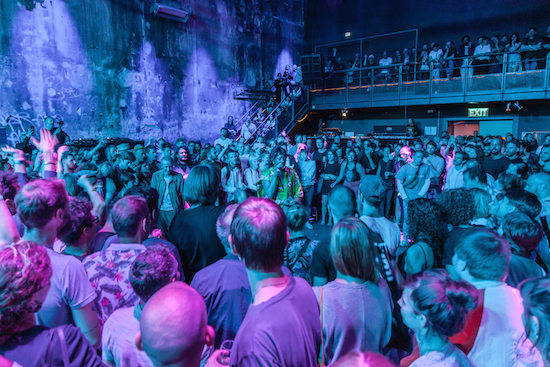Lafawndah is one of a number of acts who’ve pulled out of this week’s Pop-Kultur festival in Berlin due to ties between the event and the city’s Cultural Department of the Embassy of Israel.
In a statement shared via social media, the artist expressed her support for reports authored by Amnesty International, Human Rights Watch and Israeli human rights organisation B’Tselem, which described the Israeli state as an apartheid regime. "Palestinian artists and activists, many Jewish organisations around the world, Israeli artists and Berlin-based queer activists have all urged Pop-Kultur participants to cancel their appearances," Lafawndah’s statement said.
She continued: "Just last week, Israel admitted killing five Palestinian children with an airstrike, including four children from a single family. In its three day assault, Israel killed 47+ Palestinians in Gaza. By continuing its partnership with Israel, Pop-Kultur knowingly whitewashes these crimes. The festival’s stance is an effective show of support for racism, colonial brutality and murder, despite its savvy marketing language, touting inclusion, diversity and tolerance."
She also claimed that festival organisers had not made clear the event’s connection with the embassy, writing: "The fact that Pop-Kultur had concealed this partnership as recently as three weeks ago is a source of profound frustration for myself and I am sure many other artists."
Collaborator Trustfall, who had been due to perform with Lafawndah at the event, has also withdrawn from the bill, and shared a statement that read: "After gaining some clarity around Pop-Kultur’s stance regarding the people of Palestine, I have decided to withdraw from playing the festival.
"Pop-Kultur has been receiving, and continues to receive, grants from the Israeli regime. They alternately are opaque and unapologetic about this relationship depending on their current PR strategy and, in the case of this year’s edition, left off the Israeli state insignia from their website until just days before the festival – compromising the ethics and livelihoods of many artists. This is tantamount to entrapment."

UK singer-songwriter Alewya and Parisian musician Franky Gogo have also cancelled their appearances at this year’s festival due to the partnership with Berlin’s Cultural Department of the Embassy of Israel.
Boycotts, and withdrawals from the lineup, of Pop-Kultur due to its ties with Israel date back to the festival’s 2017 edition. The Cultural Department of the Embassy of Israel contributes to travel and accommodation costs associated with the event, and has done so through 2017, 2018, 2019 and into this year’s edition of the festival.
In a lengthy statement responding to calls to boycott this year’s event, the event’s organisers said: "Pop-Kultur is funded by the Senate Department for Culture and Europe of the State of Berlin, the European Fund for Regional Development (ERDF), and the Federal Government Commissioner for Culture and the Media. Individual artists can receive support from the national cultural institute or embassy of their respective country for travel and the realisation of their projects – this is a common practice within international cultural exchange.
"We work with all countries officially recognised by the Federal Republic of Germany. Partners and sponsors have no influence over the programming of the festival. The support of cultural institutions of individual countries depends on the artistic decisions made in the process of programming the festival.
"The Commissioned Work BĘÃTFÓØT feat. Kunty Klub receives a project grant from the Cultural Department of the Embassy of Israel. Currently, the Embassy of Israel is one of three institutions providing artist and travel support. The corresponding logos for these grants were uploaded to our website after; either we received confirmation of the support from the institutions mentioned, or we knew that we could expect a positive decision."
The festival’s statement concluded: "Pop-Kultur’s position is the same as in 2017, 2018 and 2019. If people do not want to perform at the festival because we receive an accommodation, travel or project grant from the Cultural Department of the Israeli embassy in Berlin, we regret that decision, but we accept it. The refusal to perform, the boycott, is not our decision. We are always open to constructive dialogue, because it is important to us to seek out meaningful exchange."


